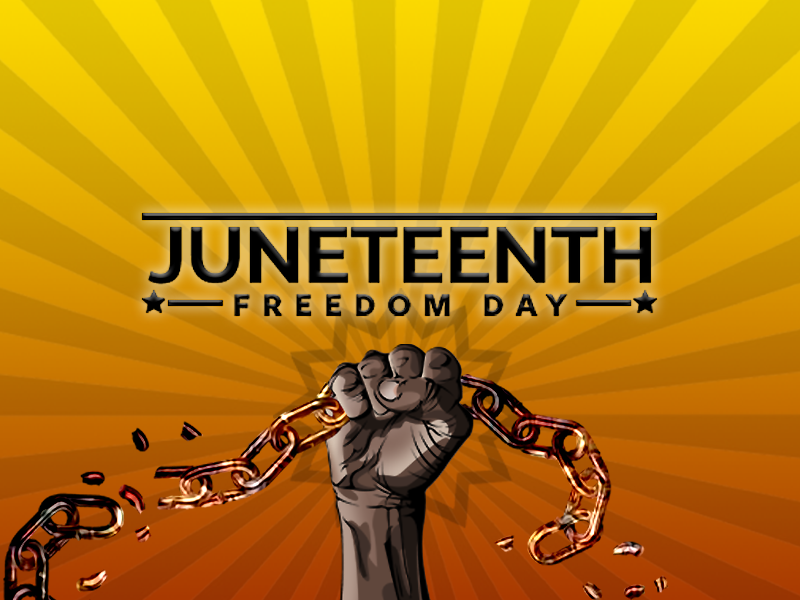It’s great that Juneteenth, a holiday celebrating the emancipation of those who had been enslaved in the United States, is now a national holiday. Now, we must define the holiday for ourselves. We choose Financial Freedom!
As the largest Black owned bank and first Black digital bank in the country, we choose to define Juneteenth as a holiday to celebrate our history and build on our need for financial freedom today. Let’s close the racial wealth gap by dispelling the myths about Black America’s relationship with money. The continued myths are impeding our ability to make progress.
Professor Mehrsa Baradaran, University of California, Irvine School of Law and author of The Color of Money: Black Banks and the Racial Wealth Gap, makes clear that housing segregation, racism, Jim Crow, redlining and other public policies created and maintain an inescapable, but hard to detect, economic trap for Black communities. She explains that the wealth gap is not something that was done by us, but something that was done to us. Only bolder, more realistic public policy changes will end the cycle of poverty and promote Black wealth.
Yes, we need changes to public policy. We also need everyone to take action now.
Over 35,000 people, overwhelming Black, registered for the OneTransaction Virtual Financial Conference to close the racial wealth gap, that took place on Juneteenth, June 19, 2021. Professor Baradaran was the opening presenter.
More importantly than the volume of people registered for the conference are their priorities. When asked to select one of six “transactions” (savings and investments, a profitable business, an improved credit score, homeownership, a will, or insurance) to close the wealth gap for their families, the highest priority was savings and investments. The myth that the racial wealth gap exists because Black Americans spend too much or spend on the wrong things is simply not true.
The Federal Reserve Bank of Cleveland published a study in 2019, What Is Behind the Persistence of the Racial Wealth Gap?, which proved that “…one factor accounts for the racial wealth gap almost entirely by itself: the racial income gap”. They concluded, if Black Americans had been paid equitably since 1977, there would be no wealth gap today! Systemic racism in employment has impeded our ability to build wealth. We don’t spend too much. We make too little.
The second highest priority selected by conference registrants is a profitable business. In addition to our goal to restore Black Wall Street by building Black owned businesses, there is an economically rational decision being made that since we are not being paid equitably for our work, we must work for ourselves. According to MarketPlace, Black communities across America saw a boost in entrepreneurship during the pandemic, largely fueled by the CARES Act. As stated, by Andre Perry, a senior fellow at the Brookings Institute, the growth of start-up businesses during the pandemic speaks to a larger lesson about access to capital. “If you really want to see the economy grow, figure out ways to invest in the underappreciated assets in our community,” he said.
While planning the conference, we surveyed registrants to better understand their needs, which dispelled another myth. While 60% of the registrants have college or advanced degrees, 60% also felt fair or poor about their financial knowledge. At some point, there needs to be a recognition by the financial services industry that the ways in which we are informing (and yes, advertising) to Black Americans about how to build wealth are not working. For the conference, we selected experts in business and personal finance who know how to inform and inspire the Black community, including Tiffany “The Budgetnista” Aliche, Daymond John and Michelle Singletary. In speaking with Tiffany Haddish, our main attraction for the Conference, we discussed the “rags to riches” story, used to inspire us, is stale and ineffective. What’s needed is a story that builds on our many assets rather than focuses on our challenges. Instead of taking us backwards, her interview by Karen Hunter (Sirius XM Urban View), “Life, Money, and the Pursuit of Happiness”, inspires us to move forward.
To be clear, changes to public policy are needed to close the racial wealth gap. However, there is also an opportunity for everyone to take action today beyond being more informed about our tragic history and making Juneteenth a federal holiday. Let’s address income inequality by paying Black Americans equitably for similar jobs. Let’s address supplier diversity by expanding procurement and investing in Black owned businesses. Let’s find new ways to talk about Black Americans and our money with a focus on our assets rather than our challenges. Let’s BankBlack, dispel the myths and take action OneTransaction at a time.




















